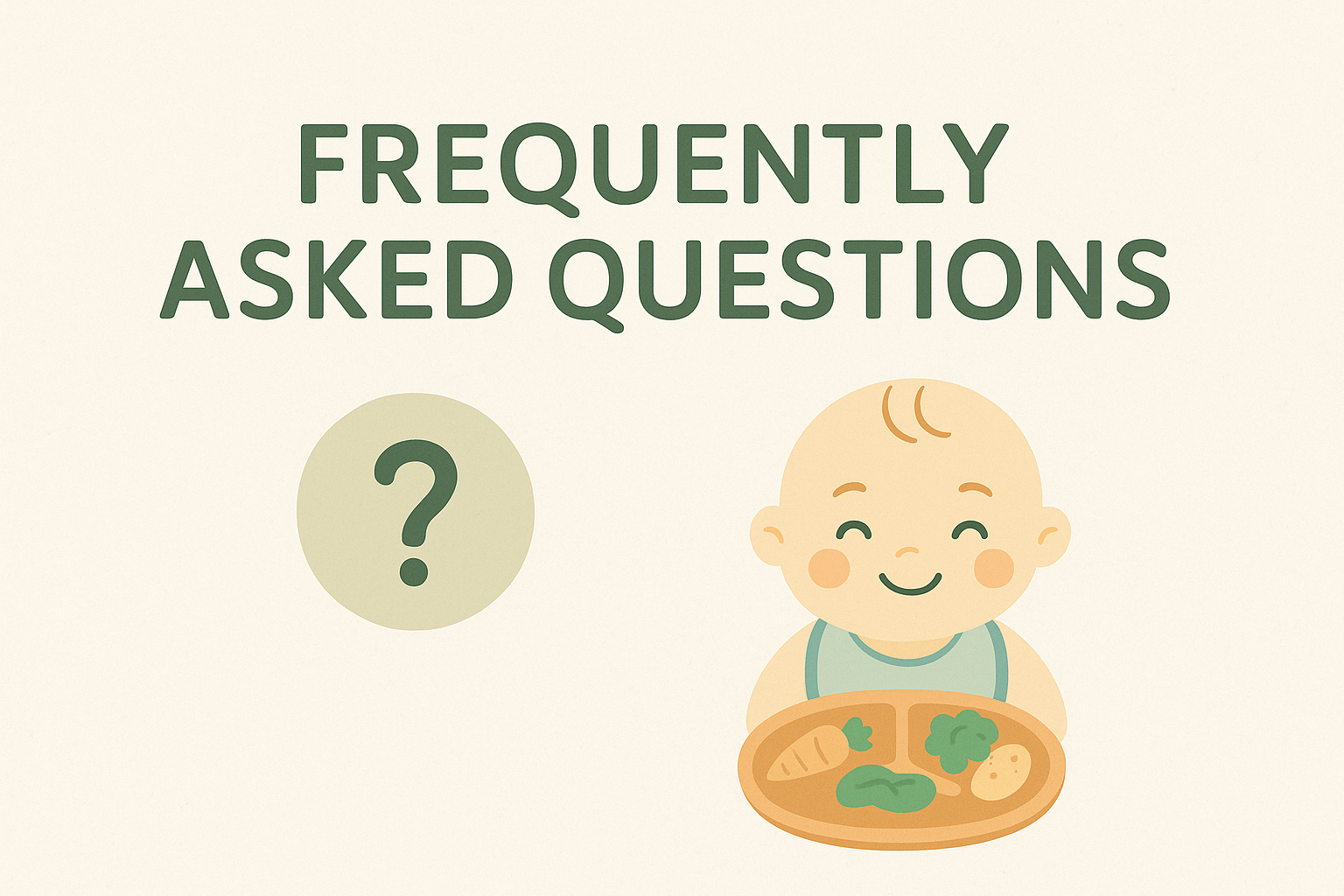Bringing home a newborn is a profound and life-changing experience. The first 30 days are filled with wonder, challenges, and a steep learning curve as you and your baby adjust to life together. This comprehensive guide on how to care for your newborn in the first 30 days covers every aspect of newborn care in the first month, drawing on expert advice and real-world tips to help you navigate this precious, demanding time. Understanding how to care for your newborn in the first 30 days is crucial for building a strong foundation for their development.
Introduction – How to Care for Your Newborn in the First 30 Days
Understanding Your Newborn: What to Expect
- Appearance: Your baby’s skin may be wrinkled, with possible birthmarks or a soft spot (fontanelle) on the head. These are normal and will change over time.
- Behaviour: Expect lots of sleeping, frequent feeding, and irregular patterns of alertness.
- Bonding: Skin-to-skin contact and cuddling are vital for emotional security and physical development.
Feeding Your Newborn
Breastfeeding
Breastfeeding is a key aspect of how to care for your newborn in the first 30 days, as it provides essential nutrients and promotes bonding.
- Feed on demand, typically every 2–3 hours, which can mean 8–12 times in 24 hours.
- Early signs of hunger include rooting, sucking motions, and hand-to-mouth movements.
- Cluster feeding (frequent feeds in a short period) is normal, especially in the first 48 hours.
- Ensure a good latch to prevent soreness and ensure adequate milk intake.
Bottle Feeding
When bottle feeding, ensure you are informed on how to care for your newborn in the first 30 days to facilitate a smooth transition.
- If using formula, follow the preparation guidelines strictly for safety.
- Paced bottle feeding allows your baby to control the flow and take breaks as needed.
- Research different bottles and nipples to find what works best for your baby.
Expressing Milk
- Learning hand expression can relieve engorgement and help with feeding challenges.
- Expressed milk can be stored for later use, and partners can help with feeding.
Burping
- Burp your baby after every feed to help release trapped air and prevent discomfort.
- Try different positions: over your shoulder, sitting on your lap, or lying across your knees.

Sleep and Safe Sleep Practices
Understanding sleep patterns is vital when learning how to care for your newborn in the first 30 days.
Newborn Sleep Patterns
- Newborns typically sleep 16–18 hours a day, but in short stretches of 2–4 hours.
- Sleep is irregular, and day-night confusion is common.
Safe Sleep Guidelines
- Always place your baby on their back to sleep, on a firm, flat mattress with no pillows, blankets, or toys to reduce the risk of SIDS.
- Keep the sleep area in your room for at least the first 6 months.
- Keep the room cool and avoid overheating; dress your baby in one more layer than you would wear.
Establishing Sleep Habits
- Expose your baby to natural daylight during the day and dim the lights at night to help set their body clock.
- White noise can soothe babies and mimic the sounds of the womb.
- Swaddling can help some babies feel secure and sleep better, but ensure it’s done safely.
Nappy Changing and Hygiene
Understanding general hygiene practices is crucial for how to care for your newborn in the first 30 days.
Nappy Changes
- Expect 8–12 nappy changes per day.
- Change diapers promptly after soiling to prevent diaper rash.
- Use wipes or damp cotton wool to clean, and apply diaper cream if needed to protect the skin.
Bathing
- Bathing isn’t needed every day; “top and tail” (washing face and bottom) is sufficient between full baths.
- Use only water and cotton wool for the first few weeks to avoid irritating sensitive skin.
- Keep the umbilical cord stump clean and dry until it falls off, usually within the first week.
Nail Care
- Baby nails grow quickly and can be sharp. Use baby nail scissors or a file to keep them trimmed and prevent scratching.
General Hygiene
- Wash your hands before handling your baby, after nappy changes, and before feeds to prevent illness.
Comforting and Soothing Your Baby
- Holding and Cuddling: Support your baby’s head and neck. Skin-to-skin contact is soothing and promotes bonding.
- Babywearing: Using a sling or carrier keeps your baby close and frees up your hands. Many babies find this calming.
- Swaddling: Some babies are calmed by being swaddled, but always follow safe swaddling guidelines to avoid overheating or hip issues.
- White Noise and Gentle Motion: Rocking, shushing, or using a white noise machine can help settle a fussy baby.
- Pacifiers: If breastfeeding is well established, a pacifier can help soothe some babies.
Supporting Development in the First Month
Tummy Time
- Begin with 1–2 minutes, several times a day, and gradually increase as your baby gets stronger.
- Always supervise tummy time and never leave your baby unattended on raised surfaces.
Sensory Stimulation
- Provide toys with different textures, sounds, and colours to engage your baby’s senses.
- Talk, sing, and read to your baby daily to support language development and bonding.
Bonding and Emotional Development
- Respond to your baby’s cues, comfort them when they cry, and provide consistent, loving care.
- Smiling at your baby, making eye contact, and a gentle touch all foster a sense of security and attachment.
Health and Medical Care
Medical Checkups
- Attend all scheduled checkups for weight, growth, and developmental assessments.
- Screenings may include hearing tests and checks for certain conditions.
- Ensure your baby receives recommended vaccinations as per your healthcare provider.
Common Concerns
- Mild jaundice, peeling skin, and irregular breathing patterns can be normal, but consult your healthcare provider if you’re concerned.
- Watch for red flags: persistent vomiting, fever, difficulty breathing, poor feeding, or lethargy. Seek medical advice if these occur.

Parental Self-Care and Support
Rest and Recovery
- Sleep when your baby sleeps, even if only for short naps.
- Accept help from family and friends, whether it’s meals, chores, or baby care.
Nutrition and Hydration
- Keep snacks and water handy, especially if breastfeeding, as hunger and thirst can strike unexpectedly.
Emotional Wellbeing
- The first month can be overwhelming. It’s normal to feel emotional highs and lows.
- Talk to your partner, family, or a professional if you feel persistently sad, anxious, or unable to cope.
Partner Involvement
- Partners can help with feeds (if bottle feeding or with expressed milk), nappy changes, and comforting the baby.
- Sharing responsibilities supports bonding and eases the load on the primary caregiver.
Further Support for New Parents in the UK
The journey of welcoming a newborn is incredibly rewarding, but it’s also common to feel overwhelmed, anxious, or isolated. Remember, you are not alone, and there’s a wealth of support available in the UK to help you navigate this special time. Don’t hesitate to reach out to the following resources:
Your Healthcare Team
- Midwife: Your midwife will provide postnatal care in the initial weeks, offering vital support, advice on feeding, baby’s health, and your own recovery.
- Health Visitor: Health visitors are a crucial point of contact for families with young children in the UK. They offer ongoing support for your baby’s development, health, and your family’s well-being. They can also signpost you to local services and support groups.
- GP (General Practitioner): Your GP is there for any health concerns for both you and your baby. They can offer advice, prescribe medication, and refer you to specialist services if needed, including mental health support.
- NHS 111: For urgent medical advice that isn’t life-threatening, you can call NHS 111 or visit their website.
National Charities and Organisations
Several charities offer invaluable support and resources for new parents across the UK:
- NCT (National Childbirth Trust): The UK’s largest charity for parents, NCT offers antenatal and postnatal courses, local groups, and a helpline for support with feeding, sleep, and general parenting queries.
- PANDAS Foundation UK: This charity provides pre and postnatal depression advice and support for parents experiencing mental health difficulties. They offer helplines, email support, and local support groups.
- Association for Post-Natal Illness (APNI): APNI offers a telephone helpline and a network of volunteers who have recovered from postnatal illness, providing support and a listening ear.
- The Lullaby Trust: A leading charity promoting safer sleep for babies to prevent SIDS. They offer comprehensive advice and support for bereaved families.
- Bliss: Supports parents of premature and sick babies, offering emotional and practical guidance.
- Family Lives: Provides a confidential helpline, email support, and forums for parents on a wide range of family issues, including adjusting to a new baby.
- MumsAid: An award-winning charity providing specialist counselling for emotional or mental health difficulties during pregnancy and after birth.
Local Support
- Children’s Centres/Family Hubs: Many local areas have children’s centres or family hubs that offer a variety of services, including stay-and-play groups, parenting workshops, breastfeeding support, and advice clinics. These are great places to meet other new parents in your community.
- Peer Support Groups: Connecting with other parents who are going through similar experiences can be incredibly validating and helpful. Your health visitor or local children’s centre can often provide details of local groups.
Online Resources and Apps
- NHS Website: The NHS website (nhs.uk/baby) provides a wealth of information on all aspects of baby care, health, and parental well-being.
- Baby Buddy App: A free app developed by Best Beginnings, offering trusted information and support from pregnancy through to your baby’s first year.
- Start for Life (NHS): Provides helpful advice and tips for parents, including sections on mental health.
Remember, seeking support is a sign of strength, not weakness. Whether you need practical advice, emotional support, or just a listening ear, there are many people and organisations ready to help you thrive in your new role as a parent.
Practical Tips for Managing Daily Life
- Meal Prep: Prepare and freeze meals before your baby arrives, or ask for help with cooking in the early weeks.
- Portable Feeding Station: Keep a basket with feeding and nappy changing essentials nearby for convenience.
- Hands-Free Support: Devices like baby loungers or swings can provide safe places for your baby while you attend to other tasks, but always supervise.
- Fresh Air: Take walks with your baby in a pram or carrier. It benefits both your mental health and your baby’s exposure to the world.
Building Your Confidence as a New Parent
Providing comfort and soothing techniques is part of how to care for your newborn in the first 30 days.
- Trust Your Instincts: You know your baby better than anyone. Don’t hesitate to seek advice, but trust your own judgment too.
- Ask for Help: Reach out to healthcare providers, support groups, or helplines if you have questions or concerns.
- Celebrate Small Wins: Every successful feed, nappy change, and moment of calm is an achievement.
Sample Daily Routine for a Newborn (First 30 Days)
| Time | Activity |
|---|---|
| 6:00 am | Feed, nappy change |
| 7:00 am | Cuddle, tummy time |
| 8:00 am | Nap |
| 9:30 am | Feed, nappy change |
| 10:00 am | Walk outside, fresh air |
| 11:00 am | Nap |
| 12:30 pm | Feed, nappy change |
| 1:00 pm | Play (talk, sing, read) |
| 2:00 pm | Nap |
| 3:30 pm | Feed, nappy change |
| 4:00 pm | Tummy time, cuddle |
| 5:00 pm | Nap |
| 6:30 pm | Feed, nappy change |
| 7:00 pm | Bath or top-and-tail, massage |
| 8:00 pm | Wind down, dim lights |
| 9:00 pm | Feed, nappy change, bedtime |
| Overnight | Feed and nappy changes as needed |
Note: Every baby is different. Flexibility is key, and routines will evolve as your baby grows.
Common Myths and Realities
Tummy time is an important activity in how to care for your newborn in the first 30 days to help develop their muscles.
| Myth | Reality |
|---|---|
| You can spoil a newborn by holding them too much | Newborns need constant comfort and cannot be spoiled |
| Newborns should sleep through the night early | Frequent waking is normal and healthy in the first month |
| Babies need a bath every day | Two to three times a week is enough in the first month |
“The first 30 days are a special time for you and your baby to form a bond. Skin-to-skin contact is one of the best ways to do this. It helps regulate your baby’s temperature and heartbeat and gives you both a sense of safety and love.”
Final Thoughts
The first 30 days with your newborn are a whirlwind of learning, love, and adjustment. Focus on meeting your baby’s basic needs, feeding, sleep, hygiene, comfort, and love while also caring for yourself. Rely on your instincts, seek support when needed, and cherish the small moments. With patience and care, you’ll lay the foundation for a healthy, happy start to your baby’s life.
By following these guidelines and trusting yourself, you’ll not only survive but thrive in your newborn’s first month. Welcome to parenthood!

FAQs – How to Care for Your Newborn in the First 30 Days
How often should I feed my newborn?
Newborns need to feed every 2–3 hours, which usually means 8–12 times in 24 hours. Feed on demand, watching for hunger cues like rooting, sucking motions, or putting hands to their mouth. Both breastfed and formula-fed babies follow this pattern in the first month.
How do I know if my baby is getting enough milk?
Signs your baby is feeding well include regular wet and dirty nappies (at least 6–8 wet nappies a day after the first week), steady weight gain, and contentment after feeds. If you’re concerned about feeding or weight gain, consult your midwife or health visitor.
How much should my newborn sleep?
Newborns typically sleep 16–18 hours a day, but in short stretches of 2–4 hours. It’s normal for sleep to be irregular and for babies to wake frequently to feed.
How do I keep my newborn safe while sleeping?
Always place your baby on their back to sleep. Use a firm, flat mattress with no pillows, toys, or loose bedding. Keep the cot or crib in your room for at least the first 6 months. Dress your baby in one more layer than you would wear and avoid overheating.
How often should I bathe my newborn?
Bathing 2–3 times per week is enough. In between, you can ‘top and tail’ your baby by washing their face, neck, hands, and bottom daily. Use only water and cotton wool for the first few weeks to avoid irritating sensitive skin.
How do I care for the umbilical cord stump?
Keep the cord stump clean and dry. Avoid covering it with tight nappies or applying creams. It usually falls off within 1–4 weeks. If you see redness, swelling, a bad smell, or oozing, contact your healthcare provider.
What should I do if my baby cries a lot?
All babies cry, especially in the first few weeks. Check if your baby is hungry, needs a nappy change, is too hot or cold, or needs comforting. If your baby cries for more than three hours a day on several days a week, it may be colic. If you’re worried or your baby shows signs of illness (fever, vomiting, lethargy), seek medical advice.
How can I keep my newborn warm?
Dress your baby in one more layer than you would wear. Use hats outdoors or in cool rooms, but remove extra layers when indoors or in a warm car to avoid overheating.
How do I know if my baby is unwell?
Seek medical help if your baby:
Has a fever (over 38°C/100.4°F)
Is unusually sleepy or difficult to wake
Is not feeding well or is vomiting persistently
Has difficulty breathing or a persistent cough
Shows signs of dehydration (few wet nappies, dry mouth)
If you are ever unsure, contact your healthcare provider.
How can I get support as a new parent?
Don’t hesitate to ask family and friends for help. Support groups, health visitors, and helplines (such as the NHS or NCT) are available for advice and reassurance. Remember, it’s normal to feel overwhelmed—reach out if you need support.
Further Reading
- Nappy Rash Prevention and Treatment
- Your Go-To Guide for Nappy Changing
- How to Soothe a Crying Baby: Proven Techniques
Disclosure: As an Affiliate, I earn from qualifying purchases. This means that if you click on a link and make a purchase, I may receive a small commission at no additional cost to you.

